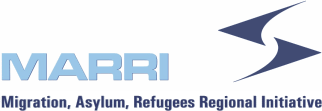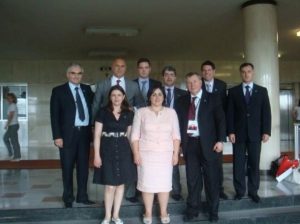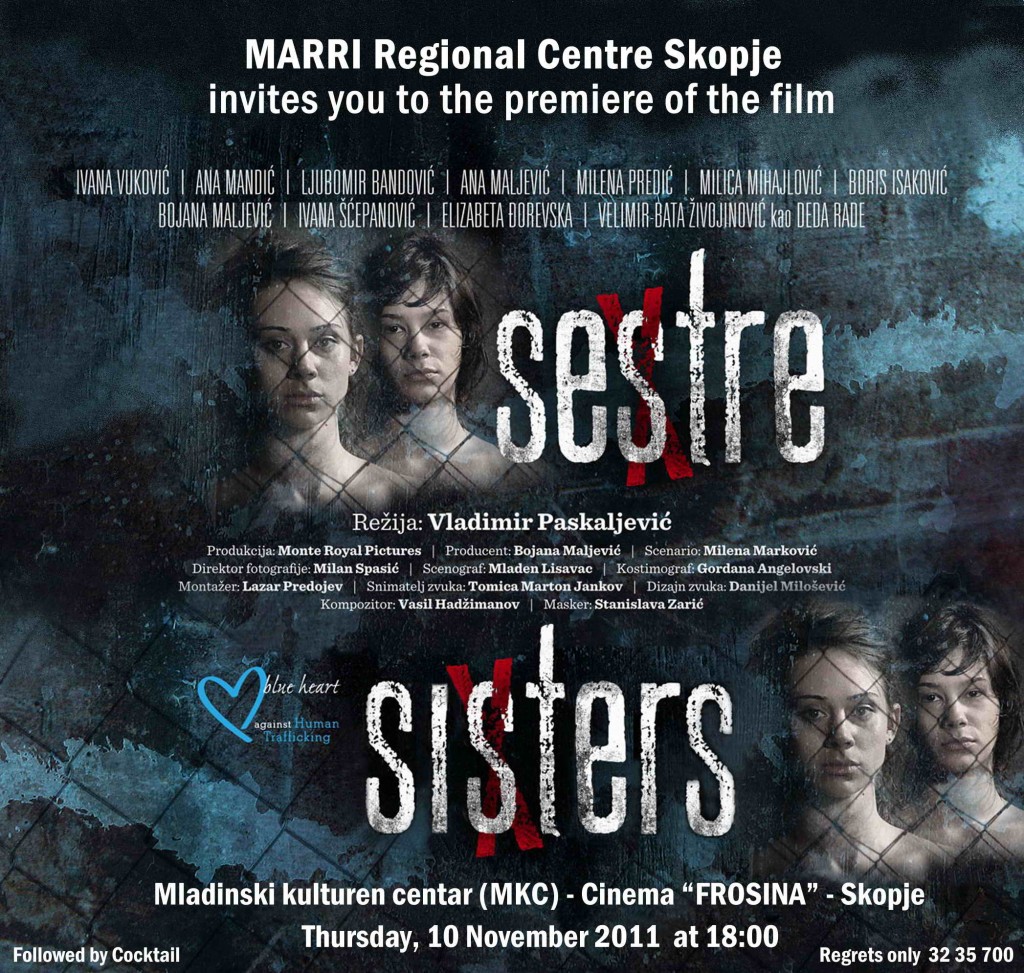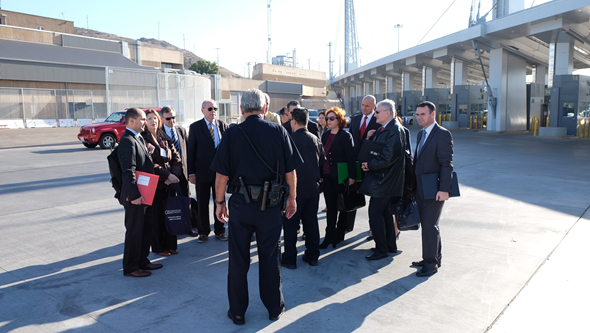MARRI Network for cooperation of Coordinators for fight against Trafficking in Human Beings (THB) was established on 8 June 2011 in Belgrade. The initial meeting was organized on the margins of international conference “Street Involved Children – Our Responsibility”, organized on 7-8 June 2011 by Save the Children, IOM, MARRI and other partners. Two main outputs characterized the meeting – agreeing Prevention to be one of the fields of regional THB cooperation; and proposals regarding the legal base for work within the Network.
On 10-11 November 2011, the Second meeting took place in Skopje. The meeting was marked by:
- Premiere of the Serbian documentary film “Sestre” (Sisters);
- Presentations of the achievements on National Action Plans;
- Discussions on possible measures for prevention and protection;
- Highlighting the importance of enhancement of cooperation among MARRI Participants;
- Proposal of the Code of Conduct as a legal base for common work within the Network.
The Third meeting, held on 12 April 2012 in Sarajevo resulted in:
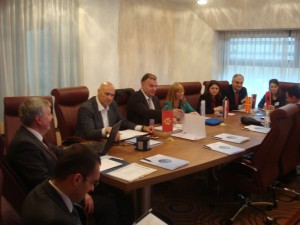
- Adoption of project proposal “Common Regional Profile of the Victims of THB and Traffickers in the MARRI Region“ ;
- Agreement regarding the future steps in promoting the newly proposed regional project;
- Presentation of upcoming activities of the Network by MARRI Regional Centre.
During the Fourth meeting in October 2012 in Belgrade, the Coordinators for THB agreed on:
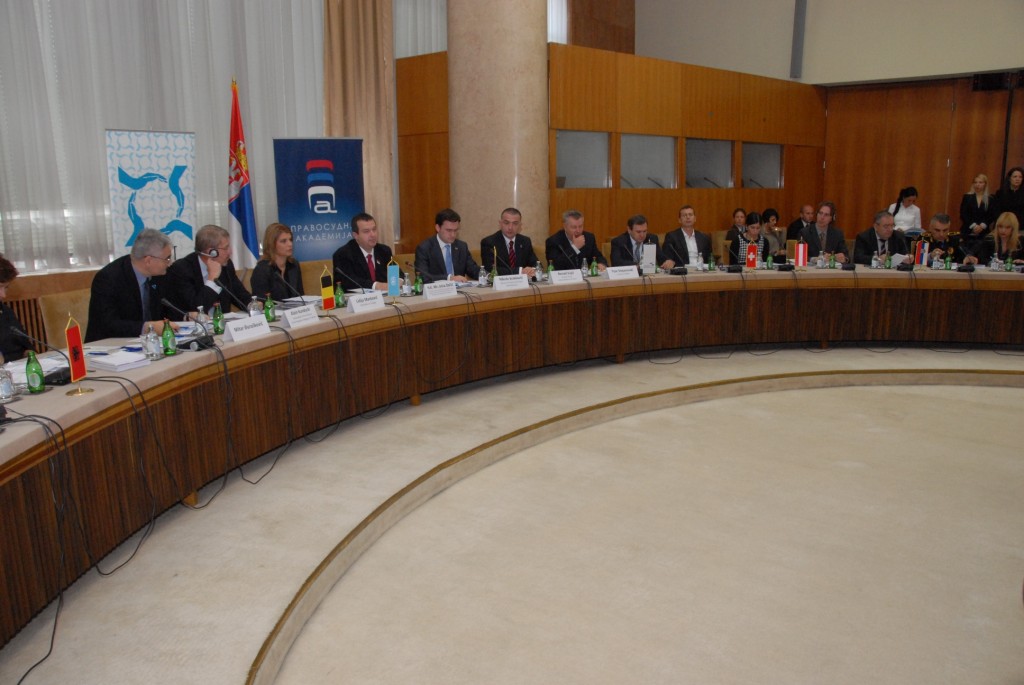
- Further promotion of the project “Common Regional Profile of the Victims of THB and Traffickers in the MARRI Region“;
- Study visit for THB Coordinators to USA;
- Publishing of regional statistics based on EUROSTAT forms after the reconstruction of MARRI website.
The Study visit of THB Coordinators to USA was organized on 16 -27 November 2014, in the framework of VolVis Project. The Coordinators were presented with:
- US mechanisms for combating all forms of forced labor and sex trafficking;
- US mechanisms of bringing together federal agencies, representatives from the policy makers, low enforcement, intelligence and diplomatic areas in fighting human trafficking;
- Examples of synergy work of anti-trafficking task forces, cross-border partnerships, federal, interstate and city efforts, victim service providers and legislative efforts;
- Coordination efforts and partnerships among government agencies, NGOs, business and academic community to combat human trafficking.
On 15-17 December 2014, THB Workshop was organized by MARRI and RACVIAC in Ohrid. The main outputs of the workshop were:
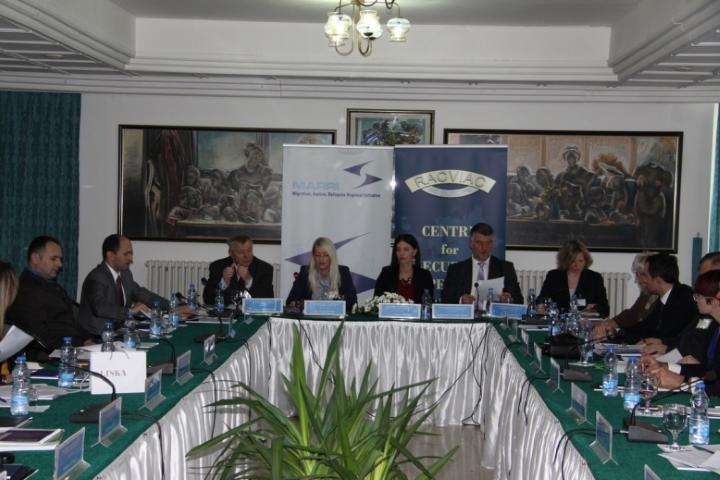
- The THB Coordinators presented and analyzed the situation in the region;
- Case study was presented by Ms. Sena Uzunovic, Prosecutor from Bosnia and Herzegovina;
- MARRI and ICMPD projects were presented along with the possibilities for future cooperation;
- Proposals and ideas for future activities were discussed and regional approach was stressed as a necessary common response to trafficking in human beings.
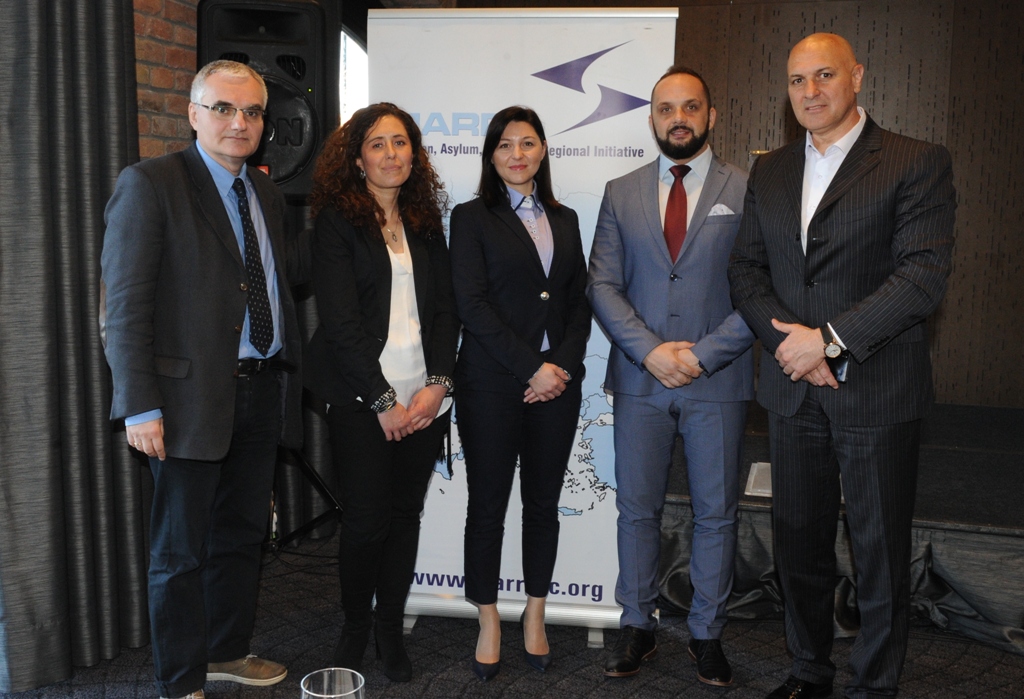
The Fifth meeting of the Coordinators was organized on 27 February 2017 in Belgrade, in the framework of “SAFERR Women and Girls (Shelter and Access to Empowerment and Risk Reduction” project, funded by UK Department for International Development (DFID).
The THB Coordinators of MARRI Participants, Bulgaria and Greece updated on the past and ongoing activities as well as outlined the further steps and activities as presented in the Conclusions of the meeting:
- MARRI should provide resources for regular Annual meetings of National Coordinators for anti-trafficking from MARRI Participants;
- MARRI website should be used as regional address for information sharing and database for relevant links related to combatting trafficking in human beings’ issues;
- MARRI has been encouraged to provide donor and coordinate regional campaign aimed at raising awareness on importance of combatting trafficking in human beings;
- MARRI should invest efforts in developing regional indicators for identification of victims and regional trainings for implementation of already adopted national indicators;
- MARRI should support information exchange between origin and transit countries, with the aim to upgrade protection of victims and prevention of trafficking in human beings;
- MARRI should support development of Information Guide for migrants containing essential data for prevention of trafficking in human beings;
- Project Common Regional Profile of the victims of trafficking in human beings should be reassessed, having in mind that its implementation has not been completed;
- MARRI should facilitate process of signing bilateral agreements for Joint Anti- Trafficking activities and encourage development of the Regional Agreement of Joint Anti-Trafficking activities.
Starting from September 2019, the Network of the THB Coordinators acts as Steering Group of the project Preventing and Combating Trafficking in Human Beings in the Western Balkans (PaCT). The meetings were organised bi-annually for the whole implementation period of the project (until May 2023).
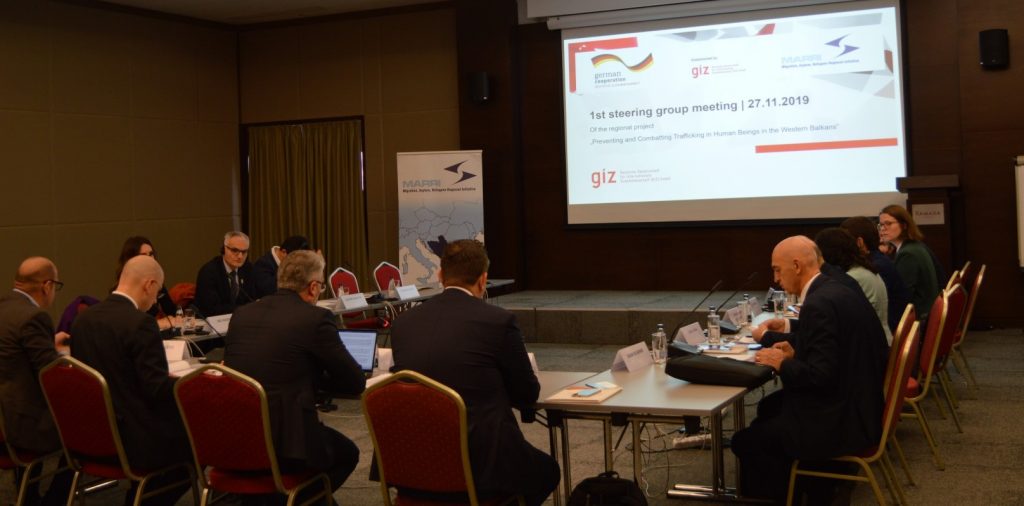
The first meeting as Steering group was held on 27 November 2019 in Podgorica. The Coordinators against Trafficking in Human Beings agreed that evaluation of the processes for developing Antitrafficking strategies and updating the existing Guidelines to be in line with the GRETA and US recommendations, will strongly support their administrations in developing new strategies.

The Second Meeting of the Steering group was held online, through the Microsoft Teams platform on 11 June 2020. The Coordinators discussed not only the project progress, but also the newest challenges that they were facing in the daily work, caused by the COVID-19. At the meeting, the participants welcomed the MARRI – GIZ support for evaluation of MARRI Participants’ THB Strategies (as agreed on the previous meeting) as well as the assistance in response of COVID-19 challenges, provided to the THB Coordinators’ Offices in all MARRI Participants, in line with the recommendations of the World Health Organization.
On 24 November 2020, MARRI Participants’ Coordinators against Trafficking in Human Beings met for the third time as members of PaCT Steering Group to discuss the project progress, outcomes and the way forward regarding the project objectives. The meeting was attended by representatives of the project’s implementing partners International Centre for Migration Policy Development (ICMPD), NGO Tjeter Vizion from Albania, NGO World Vision from Bosnia and Herzegovina and the NGO Executive Group form Serbia, representatives of GIZ Project team and the MARRI RC team.
The discussions of the fourth session of the PaCT Steering Group focused on developing approaches for enhancing the functionality of the National Referral Mechanisms (NRMs) as well as implementation of mental health and psycho-social support (MHPSS) measures in the reception centers and shelters for victims of trafficking in human beings.

On 27 May 2021 the PaCT Steering Group met for the fourth time on Zoom. The discussions of this session focused on developing approaches for enhancing the functionality of the National Referral Mechanisms (NRMs) as well as implementation of mental health and psycho-social support (MHPSS) measures in the reception centers and shelters for victims of trafficking in human beings. They were based on the key findings of a research and expert assessments on above-mentioned topics, presented by GIZ Project team. The Steering Group contemplated the way forward and agreed on the proposed activities.
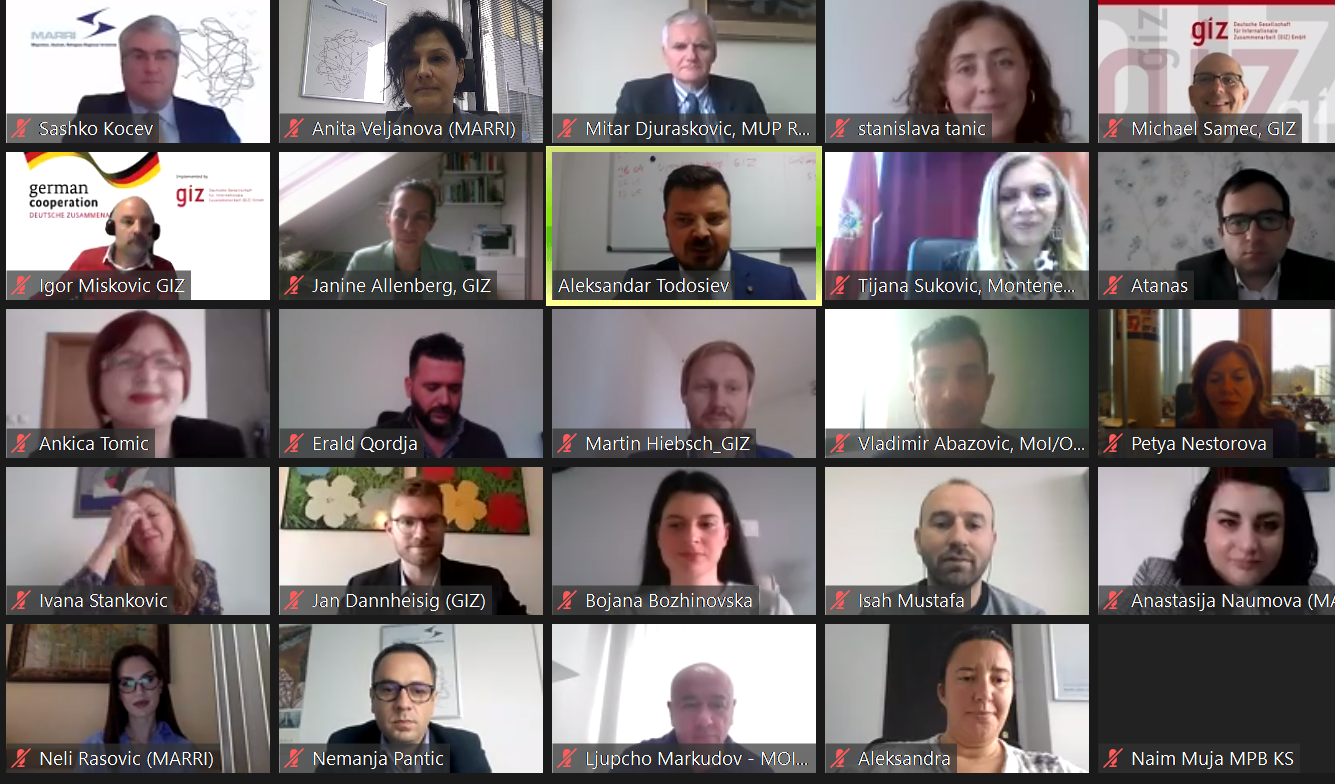
The 5th Steering Group Meeting of the PaCT Project took place on 17 November 2021 via Zoom. MARRI Participants’ Antitrafficking Coordinators, the PaCT project partners and an expert from GRETA briefed about the project progress and main achievements but also, discussed the global trends in the trafficking in human beings and their implications in the Western Balkans region.
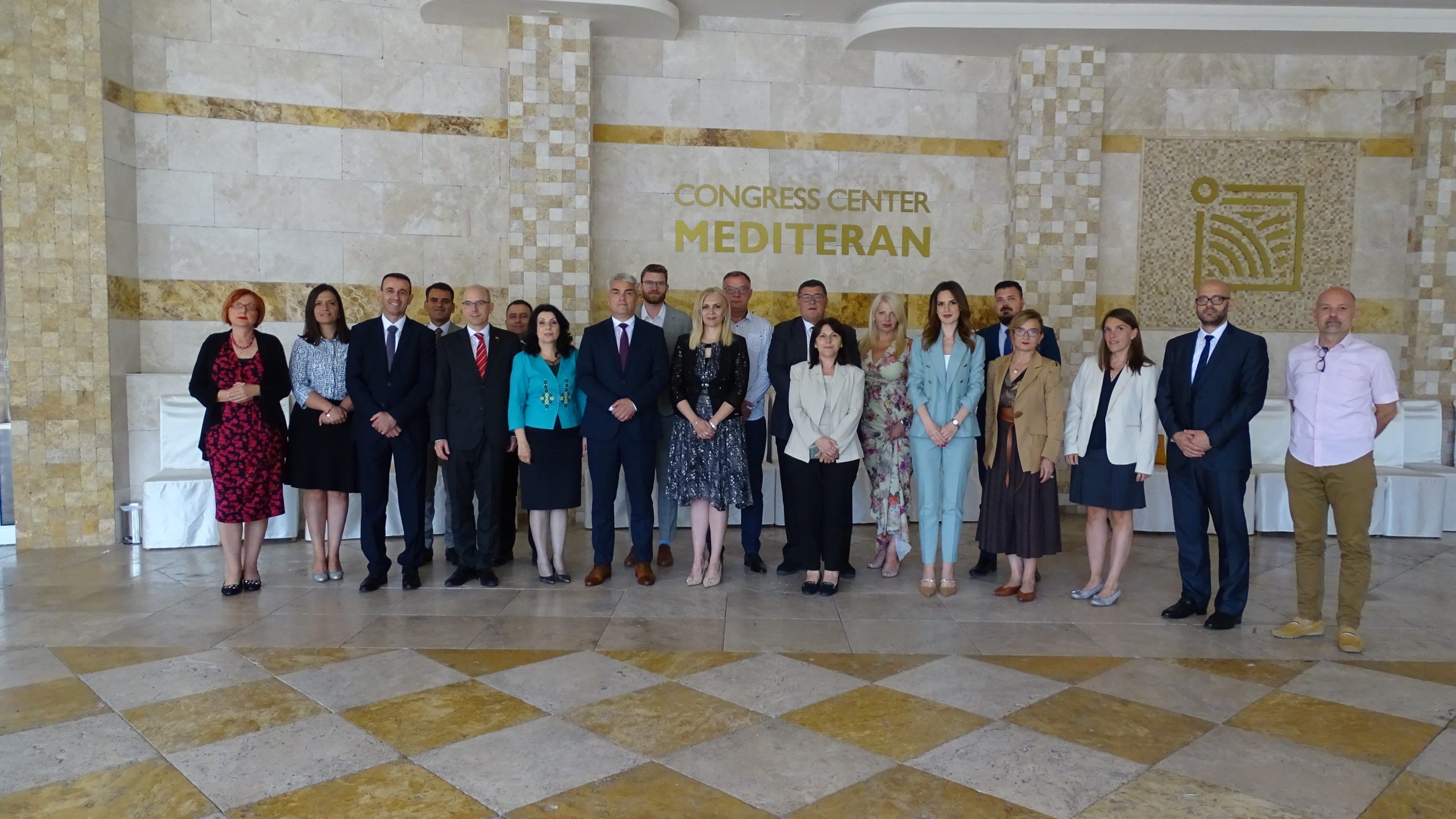
The 6th Steering Group meeting was organized on 1 June 2022 in Budva, Montenegro. For the first time, the PaCT thematic leaders within GIZ were invited to present the most recent milestones reached in each of the 6 thematic packages. The discussions regarding the presented measures were enriched with updates about the latest developments and the best practices in the region. Two other events succeeded the 6th Steering Group Meeting: the Meeting of the Network of Anti-Trafficking Coordinators of South-East Europe (NATC-SEE) and the Regional Workshop ‘’Developing Approaches for Enhancing the Functionality of the Referral Mechanisms (NRMs) in the MARRI Participants’’, in leading organisation by ICMPD.
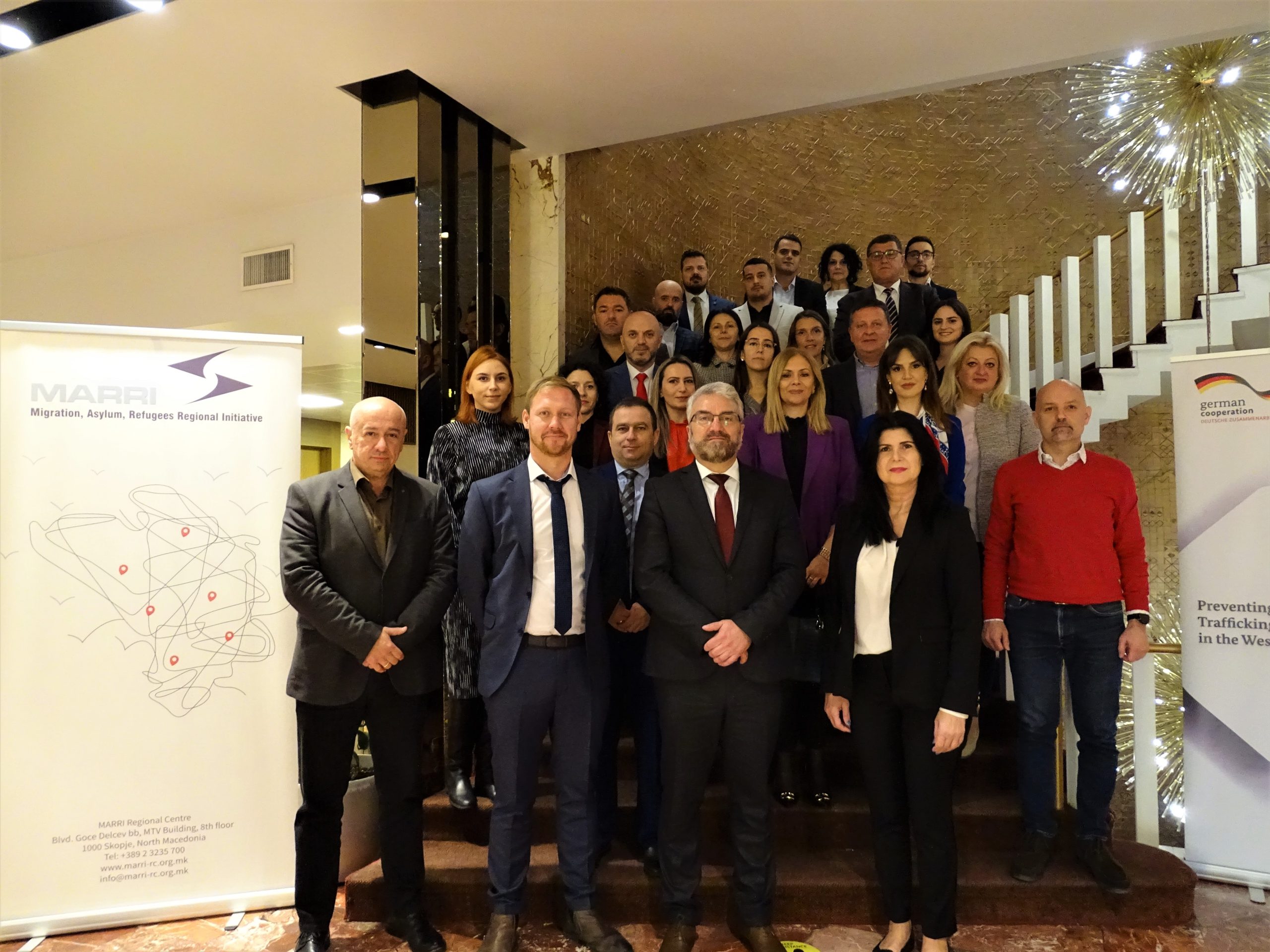
On 22 November 2022, the 7th Steering Group meeting was organized in Tirana, Albania. Following the thematic leaders’ input, the Antitrafficking Coordinators exchanged views on the recent trends and challenges regarding labour exploitation and cyber trafficking which have been identified as the prevalent and most growing forms of exploitation in a recent survey. The Coordinators recognised that higher level of regional cooperation is crucial for effective prevention and combatting of the crime.
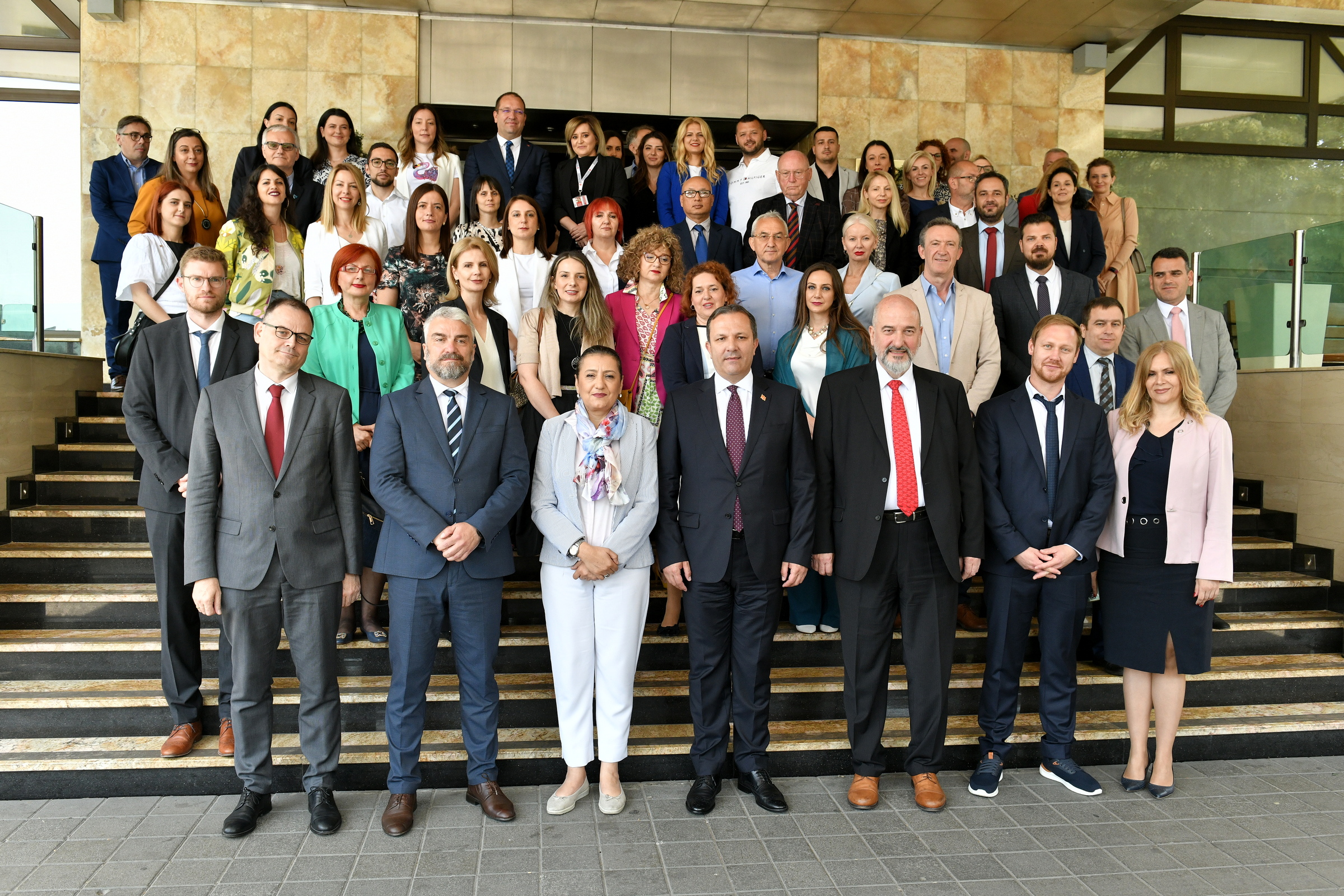
The 8th PaCT Steering Group Meeting took place on 31 May 2023 in Skopje, North Macedonia, as part of the PaCT closing Regional Conference: “Successful Together! Regional Insights and Approaches on Preventing and Combatting Trafficking in Human Beings”, organised a day before. The objective of the conference was to inspire constructive discussions about improving the effectiveness of the antitrafficking responses as well as to capture innovative approaches in providing better support to (potential) victims of human trafficking. The meeting of the Antitrafficking Coordinators was dedicated to discussions about the impact of the migration flows on the Western Balkans during 2015/16 and 2022/23, as well as the latest migration trends. The Coordinators also discussed the possibility of continuation of the PaCT project within the upcoming EU IPA III project.
